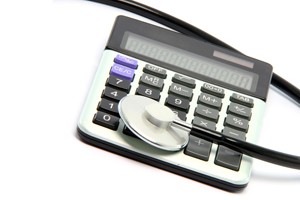Just what is reactive personal finance? It’s the management of your personal finance in reaction to events or situations as opposed to the management of personal finance in anticipation of events or situations.
The best example of this is a budget. A budget is built and held to in anticipation of events in your financial life. You know that things like your electric bill and water bill are going to be coming and roughly how much they will be. That allows you to budget for them and set aside money to pay for them with. A budget is a great tool in avoiding reactive personal finance.
Why do we need to avoid reactive personal finance? Because reactive personal finance is disruptive. You are managing and spending your money in reaction to the events that are happening. Doing so can cause you to quickly lose control of your finances and find yourself in a downward spiral of poor management choices and, eventually, it can lead to you being broke.
Some examples of events that can cause you to become reactive. Medical emergencies, blown tires, unexpected social events, and even bills that are larger than they normally are. Any thing that is unexpected can cause you to spend in a reactive manner. And when you have events like that, it can often lead to larger problems, like overspending on luxury items to make you feel better.
How do you avoid reactive personal finance? No plan is foolproof, so it’s not really completely possible. However, you can make the odds of it happening be cut drastically. How? An emergency fund and a bit of willpower. The emergency fund will give you the available spending power to cover any emergencies that would normally make you spend in a reactive manner. Instead of trying to react and borrow from somewhere else to pay for the emergency, you can just pay from the emergency fund and not need to react any further. The willpower comes in where the spending opportunity isn’t an emergency. You have to have the willpower to avoid last minute and spontaneous spending that could drain your funds and cause you to become reactive when you no longer have the money to pay bills or buy necessities.
The best laid plans often go askew. But, building an emergency fund and strengthening your resolve can go miles towards avoiding reactive finance and potential disaster.

I started this blog to share what I know and what I was learning about personal finance. Along the way I’ve met and found many blogging friends. Please feel free to connect with me on the Beating Broke accounts: Twitter and Facebook.
You can also connect with me personally at Novelnaut, Thatedeguy, Shane Ede, and my personal Twitter.

 Here’s where the benefits of an emergency fund come in. For that week that our little girl was in the hospital, the last thing we wanted to think about was bills, work, or anything not related to the well-being of that precious baby. We had friends watch our dogs, and my wife’s mother came up for a couple of days to watch our son. And we spent as much time as we could watching our little girl fight the fight in an incubator.
Here’s where the benefits of an emergency fund come in. For that week that our little girl was in the hospital, the last thing we wanted to think about was bills, work, or anything not related to the well-being of that precious baby. We had friends watch our dogs, and my wife’s mother came up for a couple of days to watch our son. And we spent as much time as we could watching our little girl fight the fight in an incubator.